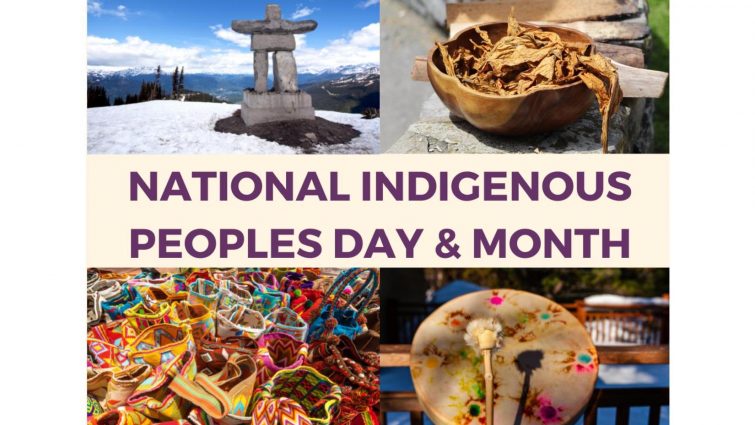In June, we observe Indigenous History Month to honour the history, heritage and diversity of Indigenous peoples in Canada and June 21, 2021 is also celebrated as National Indigenous Peoples Day. As the month draws to a close, we want to remind that the spotlight was created to acknowledge the many contributions of the Indigenous peoples to this land. These celebrations however, in no way make up for the colonial violence that creates the continuous historical and/or recent injustices, inequities the communities continues to experience.
In Canada, with the entry of European settlers taking over the land, and imposing their values, religions, laws and policies on the native populations resulted in impacts of colonization that continues to date. On April 12, 1876 The Indian Act was introduced. The Act aims to eradicate First Nations culture in favour of assimilation into Euro-Canadian society (Indigenization Foundation 2018). Establishment of Residential schools by Christian churches and the federal government to assimilate Indigenous children into Euro-Canadian society has created a shameful history. We all bear witness to the findings of unmarked graves of hundreds of children today in these residential schools. The impacts of their institutionalization in residential school continue to be felt by subsequent generations causing ongoing trauma.
A recent example of entrenched injustices and its acceptance in society is local. The Ryerson University, named after Egerton Ryerson, one of the creators of the Canadian Indian residential school system. The institutional acceptance of the concept of colonization and the glorification of colonizers like Egerton Ryerson without question was seen and felt until across the world people saw a forced decision executed in a public demonstration.
Every Canadian needs to challenge and speak out against this systemic atrocity and take Reconciliation action. There are three approaches to supporting reconciliation with Indigenous communities: decolonization, reconciliation, or resurgence. Briefly, “Decolonization could be understood as “taking away the colonial” but this raises the question of what colonial means. Colonization involves one group taking control of the lands, resources, languages, cultures, and relationships of another group”( Queen’s University Centre for Teaching and Learning 2012); reconciliation is defined as the process of “establishing and maintaining a mutually respectful relationship between Aboriginal and non-Aboriginal peoples in this country.” (Sterritt, A. 2020) Lastly, Indigenous resurgence means having the courage and imagination to envision life beyond the control and “assistance from the state. (Corntassel, J. 2012). No one approach is better than the other, how you choose to engage is up to you. The important takeaway from this is in whatever way possible, speak up against institutional racism and actively resist against colonization, that is so deeply embedded in our society even today.
References
Corntassel, J. (2012) Re-envisioning resurgence: Indigenous
pathways to decolonization and sustainable self-determination in Decolonization: Indigeneity, Education & Society Vol.1No.1, 2012, pp. 86-‐101
Government of Canada (2021) National Indigenous History Month and National Indigenous Peoples Day. https://www.rcaanc-cirnac.gc.ca/eng/1100100013248/1534872397533
Queen’s University Centre for Teaching and Learning (2012) What is decolonization? What is Indigenization? https://www.queensu.ca/ctl/teaching-support/decolonizing-and-indigenizing/what-decolonizationindigenization
Mason, J.,Lee, H., Gribilas, T., & Tomlinson, S. (June 7, 2021). EGERTON RYERSON STATUE TOPPLED, BEHEADED BY PROTESTORS. The Eyeopener (student newspaper online). In Campus News, Indigenous, News. https://theeyeopener.com/2021/06/egerton-ryerson-statue-toppled-beheaded-by-protestors/
Sterritt, A. (2020) the Canadian Encyclopedia: Reconciliation in Canada. https://www.thecanadianencyclopedia.ca/en/article/reconciliation-in-canada
